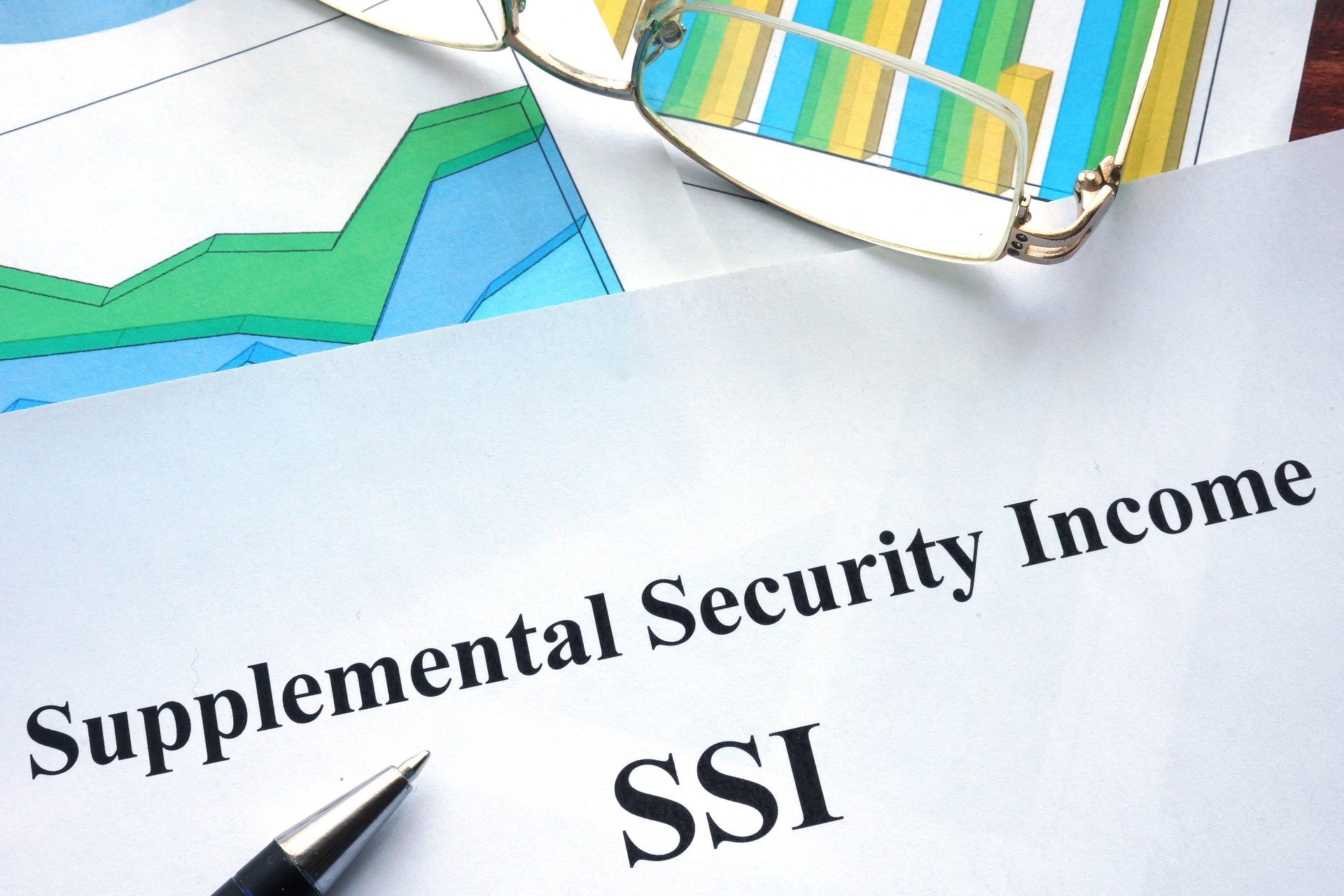Exploring the Impact of a Lump Sum Settlement on Supplemental Security Income (SSI)

Supplemental Security Income (SSI) serves as a form of assistance for individuals with disabilities who have limited income and resources. However, receiving a sum of money all at once could affect their eligibility for SSI and their benefits. In this guide, we will look into how getting a lump sum payment can influence SSI, the regulations regarding these payments, and what individuals on SSI should consider when confronted with this scenario.
Understanding SSI and Eligibility Criteria
Before discussing the consequences of receiving a lump sum payment, let's review the aspects of Supplemental Security Income. SSI is a program overseen by the Social Security Administration (SSA) that provides aid to individuals with restricted income and resources.
To qualify for SSI, an individual must meet the below criteria:
- Having a disability that hinders them from engaging in work.
- They should keep their income and resources below the set limits determined by the SSA.
- Being either a U.S. Citizen or an eligible noncitizen.
SSI benefits aim to help individuals cover food, shelter, and clothing needs. Nonetheless, receiving a lump sum payment can impact benefit eligibility based on when it's received.
The Impact of Receiving a Lump Sum Payment on SSI Eligibility
When someone receiving SSI obtains a lump sum payment, whether from a work-related injury, workers' compensation or another source, it can influence their qualification for SSI and the amount they receive.
Here's how a lump sum payment might impact SSI eligibility:
1. Determining Countable Income
The Social Security Administration (SSA) considers part of the lump sum payment as income for SSI purposes. Countable income encompasses any funds a person receives, such as earnings, retirement benefits, and other forms of assistance.
For SSI beneficiaries, the SSA uses a calculation to assess how the lump sum payment affects benefits. The payment is divided into installments, with each month's portion viewed as income.
2. Asset Limits
In addition to income, the SSA evaluates an individual's assets or possessions. A lump sum payment could increase the individual's assets, potentially exceeding the asset thresholds set for SSI eligibility.
Currently, the asset limit for an individual receiving SSI is $2,000; for couples, it stands at $3,000. If the combined assets – including the lump sum payment – exceed these limits, the individual may become ineligible for SSI assistance.
Rules for Lump Sum Payments
The Social Security Administration (SSA) has rules and instructions on how lump sum payments are managed for people who receive Supplemental Security Income (SSI);
1. Fair Allocation of Lump Sum Payments
Suppose an individual receives a lump sum payment that covers periods when SSI benefits should have been received but were not. In that case, the payment can be divided evenly over that period. This means splitting the payment into installments based on the duration covered by the payment.
This payment division helps avoid losing SSI benefits due to increased income.
2. Using Payment Funds
Individuals who receive a lump sum payment that puts them above the resource limits can "spend down" the payment amount to meet SSI eligibility criteria. This involves using the funds from the payment to pay for expenses like bills, housing, and basic necessities.
An individual reduces their resources by spending down the payment amount, bringing them back within the range to remain eligible for SSI.
Responsibilities Regarding Reporting Lump Sum Payments
SSI recipients need to understand their reporting responsibilities regarding lump sum payments. Failing to report a payment or changes in income or resources could result in penalties and overpayments, potentially resulting in loss of benefits.
Here's what you need to keep in mind:
1. Make sure to inform the Social Security Administration if you receive a lump sum settlement as an SSI recipient. Failing to report it correctly could lead to overpayments and possible penalties.
2. providing supporting documents such as the settlement agreement, court papers, or any relevant paperwork is essential when reporting a lump sum settlement. This helps the SSA accurately assess how the settlement impacts your SSI benefits.
3. After reporting the settlement, please remember to let us know about any changes in income or resources, including interest earned on the settlement amount and additional payments. Changes in assets.
Reporting these changes promptly ensures that your SSI benefits are adjusted accurately and reduces the risk of overpayments.
Getting Professional Help
Dealing with how a lump sum settlement affects SSI benefits can be complex. It's essential to seek professional advice to understand your rights and obligations. Here are the steps you can take:
1. Get advice from a lawyer
Consult with a lawyer specializing in disability and benefits law if you receive SSI benefits and expect a lump sum settlement.
An attorney can help you understand the impact of the settlement, protect your benefits, and ensure compliance with reporting requirements.
2. Connect with a Financial Consultant
Consider consulting with an advisor to help you create a plan for managing the lump sum settlement in a way that maintains eligibility for SSI. They can provide guidance on using resources, making investments, and minimizing any impact on your benefits.
3. Stay Informed
Make sure to stay informed about the rules and regulations governing reporting requirements and policy changes related to SSI benefits. Resources such as the SSA website, local Social Security offices, and advocacy organizations can provide information.
Handling the Effects of a Lump Sum Settlement on SSI
In summary, receiving a lump sum settlement can have implications for individuals who rely on Supplemental Security Income (SSI). It may affect criteria benefit amounts. Require careful adherence to SSA guidelines.
Understanding the rules surrounding lump sum settlements and SSI benefits is crucial for protecting your well-being. By managing settlements responsibly and promptly notifying the SSA of any changes, individuals can navigate the impact of a lump sum settlement while preserving their SSI benefits.
At OAS Inc., we recognize the importance of understanding SSI benefits intricacies and how financial decisions can impact eligibility. Our team of specialists is ready to provide support, guidance, and resources to assist individuals in navigating this process and maintaining stability.
Get in touch with OAS Inc.
For assistance and advice on navigating the impact of a lump sum settlement on SSI benefits, reach out to OAS Inc. Our team of experts in disability benefits can provide guidance based on your situation. Schedule a consultation to discuss your options and make sure you get the benefits you deserve.
Disclaimer: The information on this website and blog is for general informational purposes only and is not professional advice. We make no guarantees of accuracy or completeness. We disclaim all liability for errors, omissions, or reliance on this content. Always consult a qualified professional for specific guidance.








